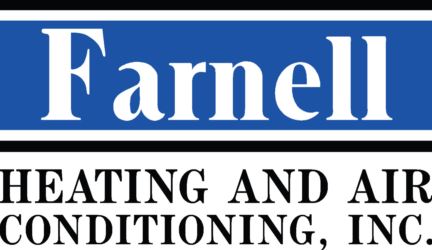
Ever done a double take when you took a look at your last energy bill? Even though high energy bills can be the end result of severe weather events, persistently high bills can also indicate an inefficient HVAC system or your home is using too much energy because of other means, including drafty windows or inadequate insulation.
One of the easiest ways to determine whether your home is wasting energy is by getting a home service expert to perform a home energy audit, also called a home energy assessment. Keep reading to learn more about home energy audits, including what they are and their key elements.
What Is a Home Energy Audit?
An energy audit is a custom inspection of how much energy your home uses up and whether – and where – your home could be losing or wasting energy. An inspector will go through older energy bills in the course of an energy audit to figure out where energy is being wasted and how much.
The general goal of an energy audit is to help homeowners save money on their energy bills by recommending energy-efficient renovations, which might include exchanging your current HVAC system, installing new insulation, sealing up leaks, or replacing old windows.
Over the course of the energy assessment, the auditor also completes an inspection of the outside and inside of your home. The auditor performs a blower door test on doorways, windows and fireplaces to figure out if there are air leaks in your home. They’ll also inspect your home’s HVAC system, as well as the ductwork, the water heater, and the insulation in your attic. Some assessments may also include inspecting your current lighting system.
Benefits of a Home Energy Audit
It can be tough for the ordinary homeowner to be sure how efficient their home is versus other similar homes in their neighborhood. However, lots of energy companies often provide information about where your home ranks in comparison to similar homes and whether it’s more efficient, about average, or inefficient versus your neighbors’ homes. This is a great starting point to decide if you need an energy audit completed.
Some of the benefits of a home energy audit include:
Understanding How Efficient Your Home Is
It’s worthwhile to know how efficient your home is and where you’re using up the most energy. For example, if your ducts are damaged, it can cause a large increase in your energy bills and additional wear and tear on your HVAC system because it has to stay on longer to properly heat or cool your home.
Making Energy-Efficient Upgrades
An energy audit should outline where you need to make energy-efficient changes to conserve energy and lower utility bills. This can include replacing worn weatherstripping or getting a new energy-efficient furnace.
Enhancing Health and Safety
Permitting air to leak into your home via doors and windows, or as a result of a lack of insulation can cause excessive moisture to build up, which could negatively influence your home’s humidity levels or encourage mold. This can exacerbate health conditions, particularly for people suffering from asthma or allergies.
Adding to Your Home’s Retail Value
Energy-efficient homes are preferred by homebuyers. You can sell your home sooner or for more money by showing potential buyers that it’s energy efficient.
How to Complete an Energy Audit of Your Home
Although completing an energy audit independently will not be as thorough as calling a professional, it’ll offer you a generalized sense of how energy efficient your home is. If you don’t discover any problems during the DIY test, then you probably don’t need to call in a professional. Try this step-by-step checklist:
- Examine your HVAC system. Damaged ducts can lose up to 20% of conditioned air, contributing to steeper energy bills and increased strain on HVAC equipment. If you notice leaks, use duct tape to seal them. If your HVAC equipment is old and wearing down, upgrading to a new system can save you a significant amount on your energy bills. In some cases, it can be better to hire a reputable HVAC company to inspect your system.
- Look for air leaks. Air leaks on average can increase your energy bills by 10 to 20%. Inside, look for air leaks in areas where there is a draft, like along the edge of flooring and near baseboards and electrical outlets. Outside, you can look for air leaks around the home’s foundation, siding and mortar. Plug, caulk or seal any air leaks to save money.
- Examine insulation. If your home is older, it could mean your insulation is too. If you can see the joists, you likely need more insulation.
- Check ventilation. Ensure that all of your kitchen and bathroom exhaust fans are functioning properly, and inspect for evidence of rot or moisture.
Contact Farnell Heating & Air Conditioning Inc for a Professional Energy Audit
If you would like professional help figuring out how energy efficient your heating and cooling equipment is, contact the HVAC experts at Farnell Heating & Air Conditioning Inc today. We’ve proudly supported the residents of Mobile with quality home services for years. Contact us today to set up an appointment.
